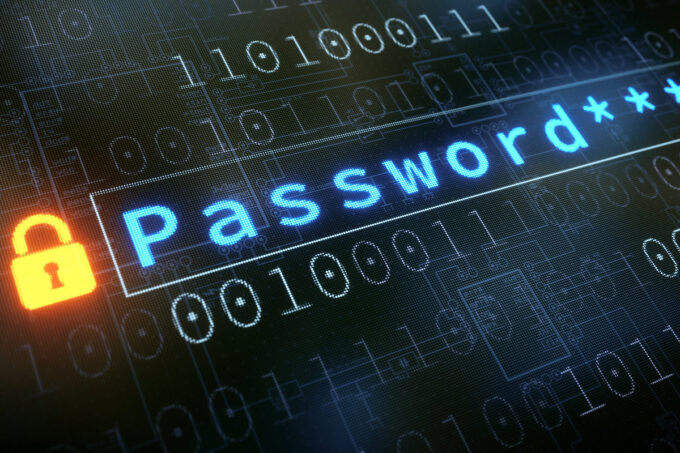You can run a small business, or you can run a big one, one thing remains the same; you need a way to preserve your important documents. This can be anything from financial reports, internal files, or any other types of docs you deem essential for your operation. Whatever the case might be, one thing is sure; you need them for your eyes only, or there’s no place for them outside your company.
If you know, there are files like these inside your facilities, but you don’t know how or haven’t secured them yet, don’t worry. There is a way you can do this and be safe that there won’t be any leaks. This is the subject of our article for today.
Let’s see what 5 smart ways to secure your business documents are.
1. Password Protection

You’d be surprised to hear how many big and small companies only store their files on laptops or desktop computers. In the case of laptops, it is even easier to steal data by taking the device itself. The worst part that they’re left wholly unprotected. So, when an LT is stolen, anyone can access vital data without even bothering to break any code or encryption. The easiest way to protect what’s important is to secure it with a password. You can install the password on the set of files or any file individually. This is possible to do with Word and Excel files and many other platforms you might be using.
This way, any person who is not authorized to access these files won’t be able to do it. If you have ever tried any product by Adobe.com, you know their products have this option too. There are many sub-options available such as restriction of opening, copying, editing, and printing. Most PDF files are easy to protect before you create and send them, making them ideal for essential files.
2. Digital Copies

Having documents on your computers or even stored in physical copies won’t do the trick in the date and age we’re living in. Hard copies are all good and well, and yes, we understand they’re easy to access, but it is also vital to have a digital copy of everything you create, send or store. If you opt to secure your files, the best place to start is a good scanner. When you have hard copies of any file, you can scan them and make a digital copy. Later you can store them on various online platforms, cloud services, and even personal servers.
Some of these options allow you to access your files even when you are out of the office, which makes them much better than relying only on hard copies. The internet changed the way we do business, and if you haven’t adapted yet, the time is right now. Besides, it is a great way to keep your files safe this way, considering that a natural disaster such as a flood or fire could destroy years of work in a matter of moments if a misfortune occurs.
3. eSignatures

The era where you had to create a document, print it, and email it to the client and then wait for them to download it, sign, scan, and mail it back. Well, this is distant past if you like new ideas and progress. With his method, the file could have been seen by people who don’t have to see it, and it is sent back and forth before anything is achieved.
Luckily, today we have electronic signatures or eSignatures that changed how business is done and how documents are signed. That being said, Signaturely is a great example of a reliable and easy to use e-signature app which can be a good choice for first-time users.
Today, you can sign anything digitally, and all work is done with one move. You can buy many kinds of applications that use a digital signature, most of which are released by authorities ensuring that safety and security standards are met. With an eSignature, you can sign any file you have on your computer without the need to print it.
Another free eSignature tool you can use is Jotform Sign.
4. Smartphone Usage

The development of the internet was followed step by step by the boom of smartphones. These devices are ever-present today, and there isn’t a person not using one. They make everyday life much more comfortable. Thanks to mobile phones with quality cameras, you don’t have to stash recipes; instead, you can take a picture of every recipe or every purchase you make.
There are already applications that allow tracking of expenses much more comfortable than it was ever before. You can also have your receipts sent to you via email or through an instant message, which also helps you keep them on your phone. New phones can even create alerts when you have a new purchase or when your credit card was used. This way, you can keep all your financial data inside of your pocket.
5. Internal Policies

Like we already said, it doesn’t matter if you’re running a small or a big business; it’s all the same when it comes to safety and security. In addition to everything we wrote above, you can always create or improve the internal policies. You can benefit greatly by having them in place and making sure your employees function according to them. These should be made to accommodate your needs and according to the number of employees you have.
You can set secure of business documents in place by putting a couple of basic rules:
- Make sure all the sensitive data is never left in plain sight if it does not belong there. This especially goes if many persons use the same printer, computer, or any other file-sharing device.
- Ensure that everyone involved with your company knows which files should be retained and for how long. Make sure necessary data is not mixed with less critical so that you don’t lose track of anything.
- Don’t keep track of the files with no value for your business from today’s point of view.
- Buy a good shredder. There will always be data that you’ll need to destroy, so make sure it is quickly done.









